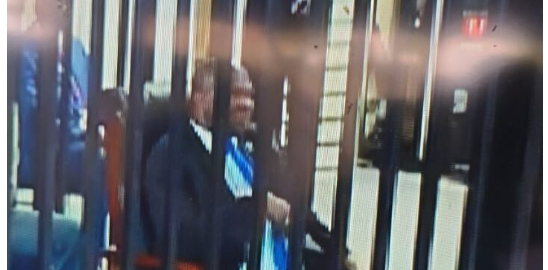South Sudanese security forces on Monday barred independent media outlets from covering the long-awaited trial of suspended First Vice President Riek Machar and seven senior officials of the Sudan People’s Liberation Movement-in-Opposition (SPLM-IO).
Only the state-run South Sudan Broadcasting Corporation (SSBC) was granted access to cover and broadcast the court proceedings, which began in Juba.
Several journalists told Radio Tamazuj that they were denied entry despite arriving early and attempting to follow procedures for coverage.
“I woke up early to cover this case,” said Denis Logonyi, a freelance journalist. “When we got to the avenue, we found the prosecutor and a man called Nyibany, but they told us we needed a document from the Ministry of Information, which we were never informed about.”
Logonyi said a Ministry of Justice official later reiterated that only SSBC would be allowed to cover the trial.
“This shouldn’t be happening,” he said. “The court is meant to uphold transparency. SSBC alone cannot provide comprehensive coverage for the entire country and the international community.”
Another freelance journalist, Ejulu Denis, described the media restrictions as “regrettable.”
“We were promised a fair and transparent trial,” he said. “Barring journalists suggests transparency is already compromised.”
The president of the Union of Journalists of South Sudan (UJoSS), Oyet Patrick Charles, condemned the move, calling it “a direct attack on press freedom.”
“In the press conference where the charges were announced, the Ministry of Justice said all accredited journalists would be allowed access,” Oyet said. “Now they have reversed that. It’s unacceptable.”
He urged authorities to allow full media access to cover the trial, citing the public interest in the proceedings.
Edmund Yakani, executive director of the Community Empowerment for Progress Organization (CEPO), said the decision undermines confidence in the transparency and independence of the judiciary.
“Only SSBC was allowed to attend. Independent and international outlets were told to get permission from the Ministry of Information,” Yakani said. “This raises serious concerns about the credibility of the trial process.”
Machar and his co-accused face a range of serious charges, including murder, treason, conspiracy, financing terrorism, acts against state authority, and crimes against humanity.




